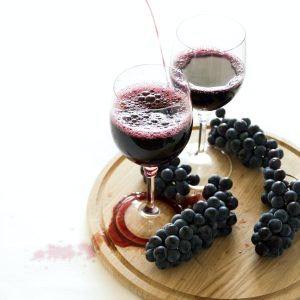Giorgia Mezacasa, the export supervisor for Aurora, the largest winery in Brazil, says that overseas drinkers are often surprised by the high standard of the wines her colleagues produce.
“The client buys the first bottle because they’re curious, and they are surprised by the quality,” says Ms. Mezacasa. “Then the second bottle they buy is a confirmation that we are producing top-quality wine.”
Brazil is not the first country most people associate with wine. Much of the nation experiences tropical weather that is too hot and humid for growing grapes. However, down in the far south of Brazil, near the borders of Argentina and Uruguay, the climate is far milder. And here in the Rio Grande do Sul, Brazil now has a thriving wine industry, with more than 1,000 wineries.
Last year, Brazil produced a collective 3.6 million hectolitres of wine, according to country-by-country figures from the International Organization of Vine and Wine. That’s certainly enough for a good party, but it is tiny compared with the giants of the wine world.
Italy, the largest producer, made 50.2 million hectares in 2021, while second-placed France was 37.6 million. Meanwhile, Argentina, the biggest winemaking sector in South America, totalled 12.5 million hectares.
To help it catch up, Brazil is now continuing with an export drive, hoping to encourage wine fans worldwide to try its bottles. Currently, it exports just 2% of its production.
Rafael Romagna, manager at export agency Wines of Brazil, explains that they have a strategic approach.
His organization was set up in 2004 by the wine trade body Brazilian Union of Viticulture to work with the government to introduce Brazilian bottles to wine fairs and trade shows worldwide.
So instead of each Brazilian winery having to do overseas promotion all on its own, Wines of Brazil would do it for all of them. “A Brazilian winery would hardly have the ways to afford the costs to go on their own to these events,” says Mr. Romagna.

“As part of the strategy, Wines of Brazil enrols Brazilian wines in blind tastings, often with positive results. Our country is not recognized as a producer yet, so people are surprised when they find out they had just tasted a Brazilian wine, and more than that, a product with high quality.”
Aurora’s Ms. Mezacasa says patience is required to build an export business. “Things don’t happen overnight, and there’s a whole study needed to define that a product is well-received among overseas clients.”
She adds that while clients will compare Brazilian wine with its neighbours Argentina and Uruguay, their focus is mostly on reds. At the same time, Brazil has developed a specialism for sparkling wines made the same way as champagne.
“We prefer to focus on what we do better – sparkling wine,” she says.
Aurora now exports its sparkling, red, white and rosé wine to more than 20 countries, including China and Japan. The winery was set up in the 1930s and remained a co-operative co-owned by some 1,100 families that all grow their grapes.
But while Brazil’s winemakers will inevitably say that their wines are excellent, what do overseas wine experts think?
Evan Goldstein, a San Francisco-based master sommelier, says the quality can be very high. “While Brazil may be a new participant for many on the global wine stage, once people try the wines, they are – at the top end of the range of offerings – quite pleasantly surprised and delighted.”
UK-based master of wine Rebecca Gibb says that the problem for Brazilian winemakers is encouraging overseas drinkers to try them first.
“While there’s nothing to say Brazil can’t find a small niche in the UK market, large volume success is hard to imagine, but there are some open-minded importers who could champion it,” she says.
“There would have to be a compelling price, quality level or signature wine style like New Zealand sauvignon blanc or Argentine malbec to gain real traction. Brazil’s sparkling wines, for example, are good, but why is a champagne, prosecco or cava drinker regularly going to opt for Brazilian bubbles?”
Back in Brazil, Ms. Mezacasa hopes that British drinkers and those elsewhere will give Brazilian wine a chance.
“When it comes to wine, Brazil is still relatively unknown, so our wines seem exotic,” she says. “And that’s what draws people’s attention.”